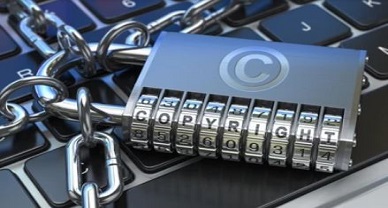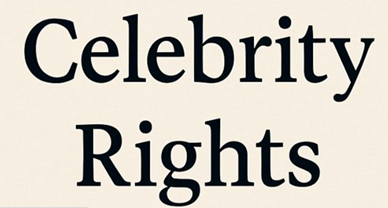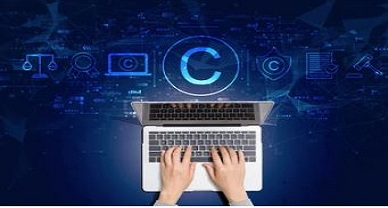The Intersection of Copyright Law and Online Education
INTRODUCTION
It is evident that the significance of online education has risen over time, and even more so in the period that followed the COVID-19 outbreak. With over 1.90% of learners disturbed and 5 billion learners influenced, online education is the best solution for the continuation of classes in the time of lockdowns and more. This change, as a result, has promoted the use of the new online learning environment in educational institutions across the globe making online education normal. At the same time, this shift also raises various questions relating to copyrights and the safety of educational content and the authors’ rights.
Another lesser-known problem of the authors of the schools providing educational services through the Internet is the question of the control of the distribution of copies of copyrighted works. It can be seen that teaching environments do not allow the same control over the distribution of paper copies as online environments that provide a possibility to share digital copies of resources. This make chances of piracy and copyright infringement higher because lots of course encompasses material such as video, powerpoint presentation, and text among others, which once created can be duplicated and distributed by people other than the original creator.
Moreover, these kinds of works, in most cases, have inadequate rights protection based on the existing laws of copyright. Most countries and regions do not have open-ended excuses through which instructors can rely on copyrighted items for teaching without violating the law. This has led to a state of ambiguity in which teachers could be violating the law on copyright since they are in constant pursuit of ways to improve the quality of their teaching.
Essentially, it is imperative for online education to be acquainted with the laws of copyright, to share content responsibly, and to advocate for alteration of laws for the better as per the educative needs without violating the copyright owners’ rights.
Copyright Protection of Educational Content
Copyright is a highly relevant issue in the sphere of education; it applies to such types of materials as textbooks, research-based articles, online classes and lectures, presentations, and others. These works are covered by the legal concept of copyright, which gives the author a set of enforceable rights over the use of his/her work. This protection enables the author or owner to determine who has the right to produce, publish, or exhibit the work in order to get the deserved credit and income. However, any advancement to digital education has exposed some issues with the laws that pertain to copyright, especially as many institutions of learning have shifted towards online classes.

The challenge of uploading and sharing content increases the vulnerability to infringement, further the fact that most materials can be made easily accessible online. As opposed to conventional schooling, in which books and other physical documents may be tracked with greater ease, electronic versions can be reproduced at a faster rate and in larger quantities. This puts educators in a rather fragile position where they risk violating the rights of copyright owners in their endeavours of enriching their teaching with a variety of materials. Due to the use of digital copies, it has raised the importance of coming up with clearer laws or exemptions within the copyright law in relation to online learning.
Other laws that have been put in place include fair use provisions as well as specific educational exceptions, but these provisions are grossly inadequate when it comes to the digital environment. Most teachers are faced with many challenges of licensing of materials and copyright issues; hence, they end up narrowing down their options for bringing out the best teaching and learning processes. The current COVID-19 pandemic has also Worst still, these issues have been compounded to show how restrictive copyright regimes can hinder access to crucial learning content. Thus, there is an imperative need for radical changes to the existing legal framework of copyright as regards its compliance with the modern educational process as a sphere which should fairly safeguard both the rights of authors and the educational interests of students.
Legal Challenges for Online Education Platforms
Interfaces used in education based on the Internet and computer technologies are experiencing considerable legal problems regarding the protection of copyrights of the materials uploaded & the convenience of the learner. Due to the subject matter, copyrights, and legal responsibilities, these platforms operate under the grey area.
Another major legal concern is the failure to take down materials within the knowledge of the service providers when notified or where the service providers have reasons to believe that the contents are infringing. This was set in the earliest case of A&M Records Inc. v Napster Inc. in which it was held that Napster could be held legally liable for both contributory and vicarious copyright infringement due to its awareness of the infringement activities and its capacity to prevent such activities. In the same way, facilitators of online education have to check for and regulate instances when content that is protected by copyrights without due permission is uploaded and shared.
However, applying an extremity of copyright restrictions has an adverse effect on the experience, as it makes legitimate educational use more difficult. It is noted that it is impossible to seek permission each and every time one wants to use a portion of a copyrighted work because this will be time-consuming and counter-productive. Platforms needs to find a balance between the protection of rights and the free access to education material.
Compounded with this concern is that a number of countries do not even have lawful limitations on how, when or under what circumstances a copyright may be claimed for distance or online education with the result that copyrighted material cannot be used for teaching purposes without permission. This legal insecurity puts the platforms in a defensive position to block potentially more content that may actually be allowed for fair use or fair dealing.
Interstate educational uses raise more legal issues. When using technology in education and learners and instructors from different jurisdictions are using the same media, it is a challenge to determine which country’s laws on copyrights are to be followed. Platforms may have to adhere to the harshest laws so as to avoid any legal repercussions no matter the existence of less strict laws in other jurisdictions.
To navigate these challenges, online education platforms should:
- Introduce and integrate systems of content identification of pirated content for its subsequent removal
- To be allowed use of materials one has to pay fees to the copyright collectives.
- Promote free educational resources which are licenced under an open licence and free from copyright discourage the use of copyright resources.
- Volunteer to speak out in favor of enhancing the laws that govern the copyright to ensure that it has liberal rules governing the digital learning platforms.
- Ensure that the users are well informed on the acceptable use of the copyrighted material.
Perhaps it is necessary to find a symbiosis – to fulfil the rights of creators and support the further development of internet-based education. Integration between multiple platforms, faculty, and governmental agencies ensures the possibility of increasing stakeholders’ utility.
Mitigating Copyright Risks
The copyright risks are high when it comes to online education platforms, and the publishers have to take adequate measures to counter them. Meanwhile, one of the most effective approaches to such risks can be permission to use educational content from the copyright holders. This can be done through licensing agreements which outlines how and when the content may be used as well as the regions in which it may be used. Due to the permissions ensured, the platforms can eliminate the possible legal consequences and transfer a vast array of educational content to the users.
Open-access shared contents can also be used as other strategy of reducing the amount of fake news that circulate in the internet. Numerous schools, scholars, websites, and producers are putting their works under open licenses including Creative Commons license that permits free use of content, distribution, and modification with minimal reservation. Thus, encouraging the use of materials with an open license minimizes the likelihood of violating copyright legislation while offering useful learning materials.
Wherever there is an occurrence that requires the use of copyright materials, platforms should only upload a hyperlink to the original material instead of the full piece. This tactic is called ‘deep linking’, it lets readers go to the page with the material coming from the copyright holder’s site, guaranteeing the author the proper amount of site traffic and recognition. Deep linking should be employed in cases where a link to a resource violates the copyright law, but at the same time, a individual requires educational materials.
Informing the users of the copyright laws and the repercussions of violating them is the other measure of risk management. It means that many users can have no idea about the fact that they can face legal consequences for sharing the known copyrighted material without following the permission of legal holders. Since copyright is a complicated issue, most people do not know what they can or cannot do, some do not even know their rights or potential violations associated with copyrights; platforms play a crucial role of providing information on copyrights hence educating the users.
Last, but not least, online education platforms should demand changes of the copyright laws that define elastic exemptions to digital education. Most of the current copyright laws were formulated before awareness of online learning and social learning environments, thus might not meet the requirements of the current society. The platforms’ advocacy for changes in the laws and policies favoring creatives while preserving students’ capacity to learn remotely, suggest that Online learning can be sustainable once it respects IP rights.
Thus, by applying the herein-discussed strategies, education platforms offering courses online will successfully address the copyright issue and offer their customers legally sound and safe experiences in receiving education online.
Conclusion
Therefore, when it comes to the aspect of online education, copyright presents a major factor that needs to be addressed through appropriate solutions that both safeguard the interests of authors while at the same time ensuring that education is not hindered as a result of restrictive measures. With the shift of education to utilizing technology, it is crucial to deal with the challenges of the copyright law in a way that fosters creativity as well as learning.
To overcome these issues, it is required to collaborate all the deputed educational institutions, proper technology vendors, and all the legal bodies involved in delivering educational facilities for the learners. These groups can consequently come up with strategies that not only protect property; information especially that of the developing nations, but also foster responsible sharing of knowledge. This process of cooperation can result in the development of the standards and policies that would advance users’ benefit and decrease the possibility of legal issues.
Additionally, modifications of the copyright laws are essential for designing open and varied fair uses in the educational context of the digital environment. Lawmakers should understand the necessity for the accustoming the current legislation to generalize the tendencies that have occurred due to the conditions of online learning, so that the educators were allowed to use a greater number of materials without the infringement. Furthermore, collaboration on the international level is significant when it comes to solving matters concerning copyright infringement, as the online education environment eliminates geographical barriers and implies cooperation of students or educators in different countries.
With these reforms and with the cooperation achieved, it is possible to achieve the best outcome of using the Internet for education when respecting the rights of authors. The above approach is not only going to complement the teaching leaners; it will also foster equity and access to the growing technology in the learning process. In the future, the use of online education must be supported by meaningful concern to all parties and continuing commitment to search for the solution that can produce significant future that can offer a good prospect for both educational personnel and contents’ providers.
Author:– Rani Tiwai, A Student at National University of Study and Research in Law, in case of any queries please contact/write back to us at support@ipandlegalfilings.com or IP & Legal Filing.
VI. REFERENCES
- https://www.intepat.com/blog/copyright-issues-in-online-education/
- https://www.orfonline.org/expert-speak/copyright-in-educational-material
- https://www.ei-ie.org/en/item/26467:education-and-copyright-obstacles-to-teaching-in-the-digital-age
- https://iptse.com/copyright-issues-in-online-education/


